Chemical waste can be scary, but not knowing how to dispose of chemical waste correctly is terrifying!
Whether you’re running a laboratory, a hospital, a factory, or even a small office, knowing how to handle and dispose of chemical waste safely is crucial. Allow us to guide you through the various methods and best practices for chemical waste disposal.
From understanding chemical waste and its associated risks to learning best practices for storage and disposal, we’ll cover everything you need to know to manage chemical waste responsibly. Let’s dive in and remove the guesswork so you can make a significant impact with sound chemical waste management.
Understanding Chemical Waste and Its Risks
It refers to any discarded material that either contains dangerous chemicals or has come into contact with them. This material can exist in various forms – solid, liquid, or gaseous – and may pose risks to human and environmental health.
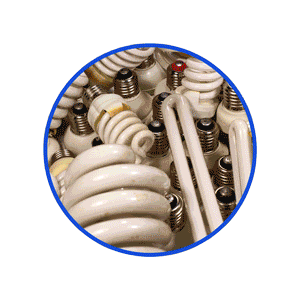 Examples of chemical waste include waste electrical items, cleaning products, waste oils, paints, solvents and printer toner and ink cartridges.
Examples of chemical waste include waste electrical items, cleaning products, waste oils, paints, solvents and printer toner and ink cartridges.
If chemical waste is disposed of improperly it can pose a significant risk to both human health and the environment. Some of the key dangers include:
Health Risks:
- Acute toxicity: Immediate health problems from a single exposure.
- Chronic toxicity: Long-term health effects from repeated exposure.
- Irritation: Skin and mucous membrane irritation.
- Sensitisation: Allergic reactions to chemicals.
- Carcinogenicity: Increased risk of cancer.
 Environmental Impact:
Environmental Impact:
- Water pollution: Contamination of water sources, affecting wildlife and human health.
- Soil and plant contamination: Leaching of harmful chemicals into the soil, affecting plant life and potentially contaminating groundwater.
- Toxic sites: Areas unsuitable for habitation due to chemical contamination.
And that’s without listing all the safety hazards such as explosions and fires, contaminated drinking water and the risks posed to waste workers.
It’s crucial to dispose of chemical waste responsibly and compliantly to protect ourselves and our environment.
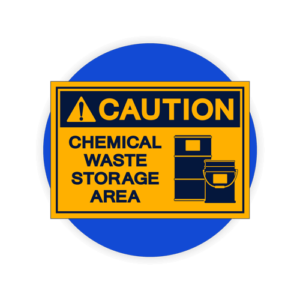 How to Store Chemical Waste
How to Store Chemical Waste
Before it’s time for disposal, you’ll need to be storing your chemical waste somewhere on-site and businesses in the UK are subject to stringent regulations regarding the storage and handling of chemical waste. These regulations, such as the Control of Substances Hazardous to Health (COSHH) are designed to protect workers, the public and the environment.
Here are some helpful tips for storing chemical waste compliantly:
- Risk Assessment: Conduct a thorough risk assessment to identify potential hazards associated with the chemicals you handle and implement appropriate control measures.
- Storage Area Design: Ensure that your storage area is adequately designed to prevent accidents and spills. Consider factors such as ventilation, lighting, and accessibility.
- Labelling and Inventory: All chemical containers must be clearly labelled with the chemical’s name, concentration, hazard symbols, and any relevant safety information. Maintain an accurate inventory of all chemicals on-site.
- Segregation: Store incompatible chemicals separately to prevent dangerous reactions.
- Spill Containment: Have appropriate spill containment equipment, such as drip trays and absorbent materials, readily available.
- Regular Inspections: Conduct regular inspections of your chemical storage area to identify and address any potential hazards.
- Compliance with Regulations: Stay informed about and comply with all relevant UK regulations regarding chemical storage and handling.
Industry-Specific Considerations:
- Manufacturing: Ensure that storage areas are designed to accommodate large quantities of chemicals and that appropriate ventilation systems are in place.
- Laboratory: Store chemicals in a secure, well-ventilated laboratory. Implement specific safety measures for handling hazardous substances.
- Retail: Store chemicals in a locked area, away from customers and children. Provide clear labelling and safety instructions.
By following these guidelines and complying with UK regulations, you can create a safe and compliant chemical storage environment.
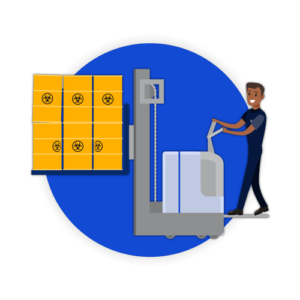 How to Dispose of Chemical Waste
How to Dispose of Chemical Waste
Got chemical waste to dispose of? You’re not alone – businesses all over the UK generate a wide range of chemical waste, from laboratories and hospitals to factories and offices.
As we touched on earlier, improper disposal can lead to serious environmental harm and hefty legal penalties, so here are some best practices for getting it right:
- Avoid improper disposal: Never pour chemicals down the drain.
- Use licensed waste carriers: Partner with reputable hazardous waste companies for safe transportation.
- Follow disposal guidelines: Adhere to specific regulations and best practices for each type of waste.
- Stay informed: Keep up-to-date on the latest regulations and disposal methods.
- Waste Management: Implement a proper waste management plan to ensure that chemical waste is disposed of safely and legally.
- Label and Segregate: Clearly label all chemical waste containers and segregate them based on compatibility to prevent hazardous reactions.
- Minimise Waste Generation: Implement measures to reduce the amount of chemical waste generated, such as using more efficient processes or switching to less hazardous alternatives.
- Train Employees: Provide training to employees on proper handling, storage, and disposal of chemical waste.
- Develop Emergency Procedures: Have a hazardous waste emergency response plan in place to address spills, leaks, or accidents involving chemical waste.
- Maintain Records: Keep accurate records of all chemical waste generated, stored, and disposed of. These records can be required for regulatory compliance and auditing purposes.
- Consider On-Site Treatment: In some cases, it may be feasible to treat chemical waste on-site before disposal. Consult with a qualified professional to determine if this is appropriate for your business.
- Seek Professional Advice: If you’re unsure about how to dispose of a particular type of chemical waste, consult with a hazardous waste management specialist or your local environmental health officer.
By following these best practices and working closely with hazardous waste experts, you can ensure that any chemical waste your business is producing is disposed of safely and responsibly, in compliance with UK regulations.
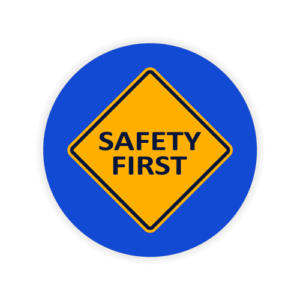 Safe Chemical Waste Disposal is Imperative
Safe Chemical Waste Disposal is Imperative
Understanding how to dispose of chemical waste safely involves knowing the specific waste disposal methods for different waste types. Regular waste collection and one-off clearances by licensed carriers ensure that even difficult waste, such as asbestos chemicals or ozone-depleting substances, is handled correctly.
If you’re looking for chemical waste disposal services, we’re happy to help! We’re a licensed hazardous waste carrier with the expertise to handle any type of chemical waste and ensure compliance.

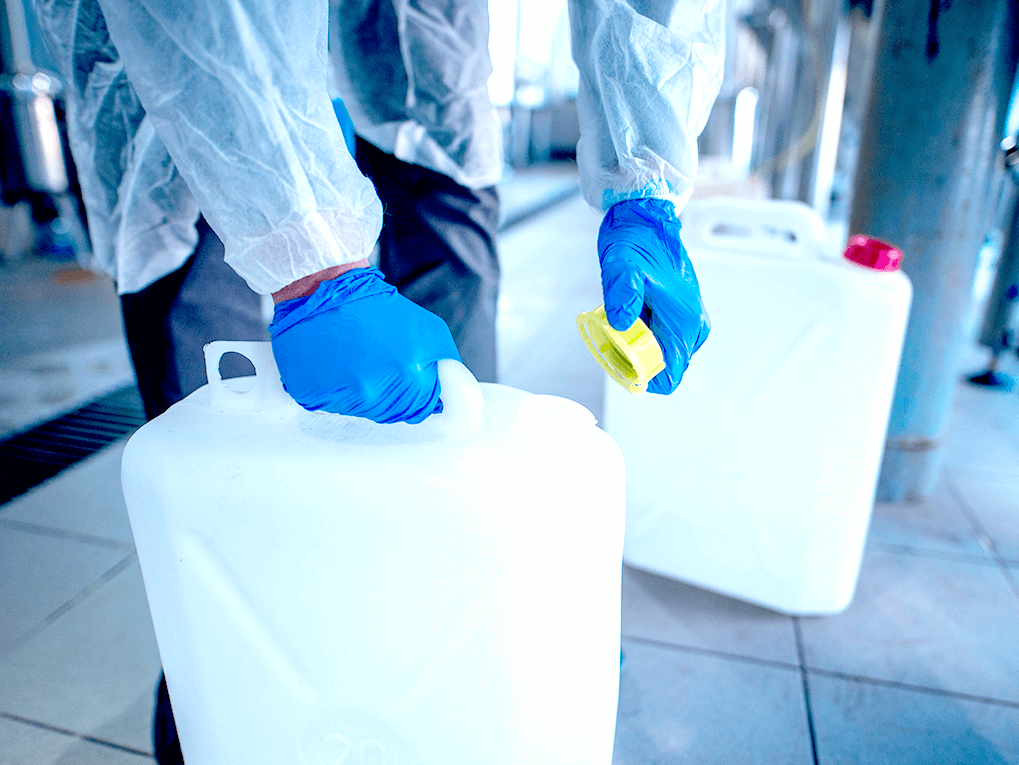
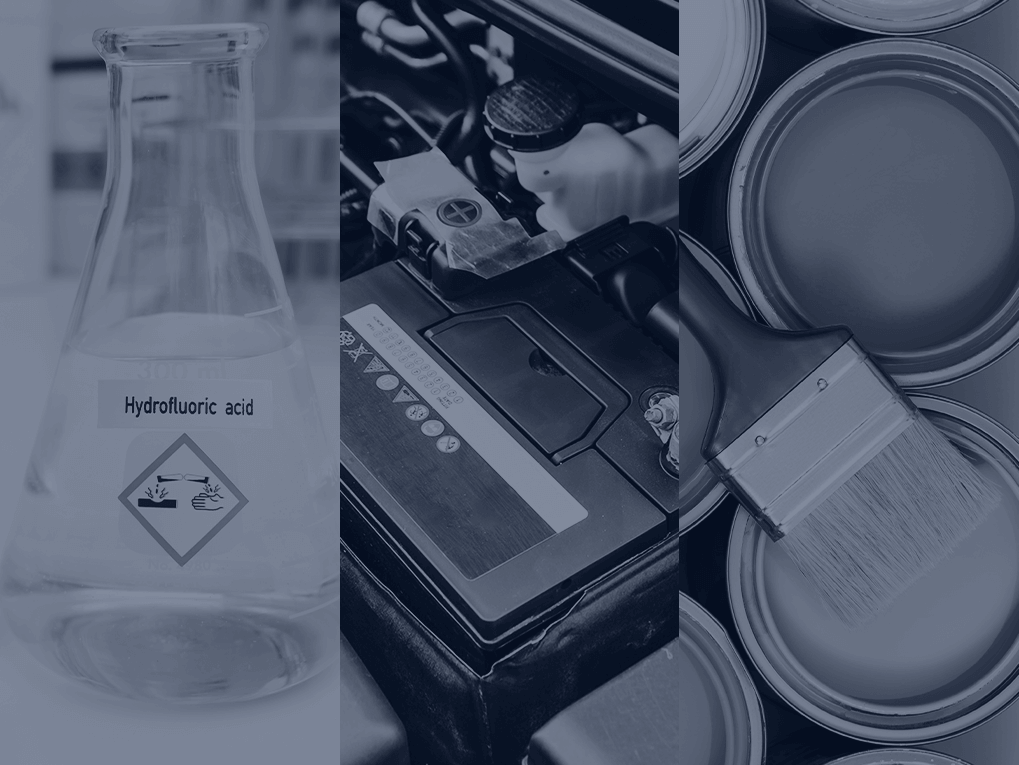

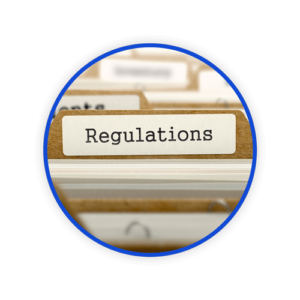 Regulations and Guidelines for UK Chemical Waste Disposal
Regulations and Guidelines for UK Chemical Waste Disposal